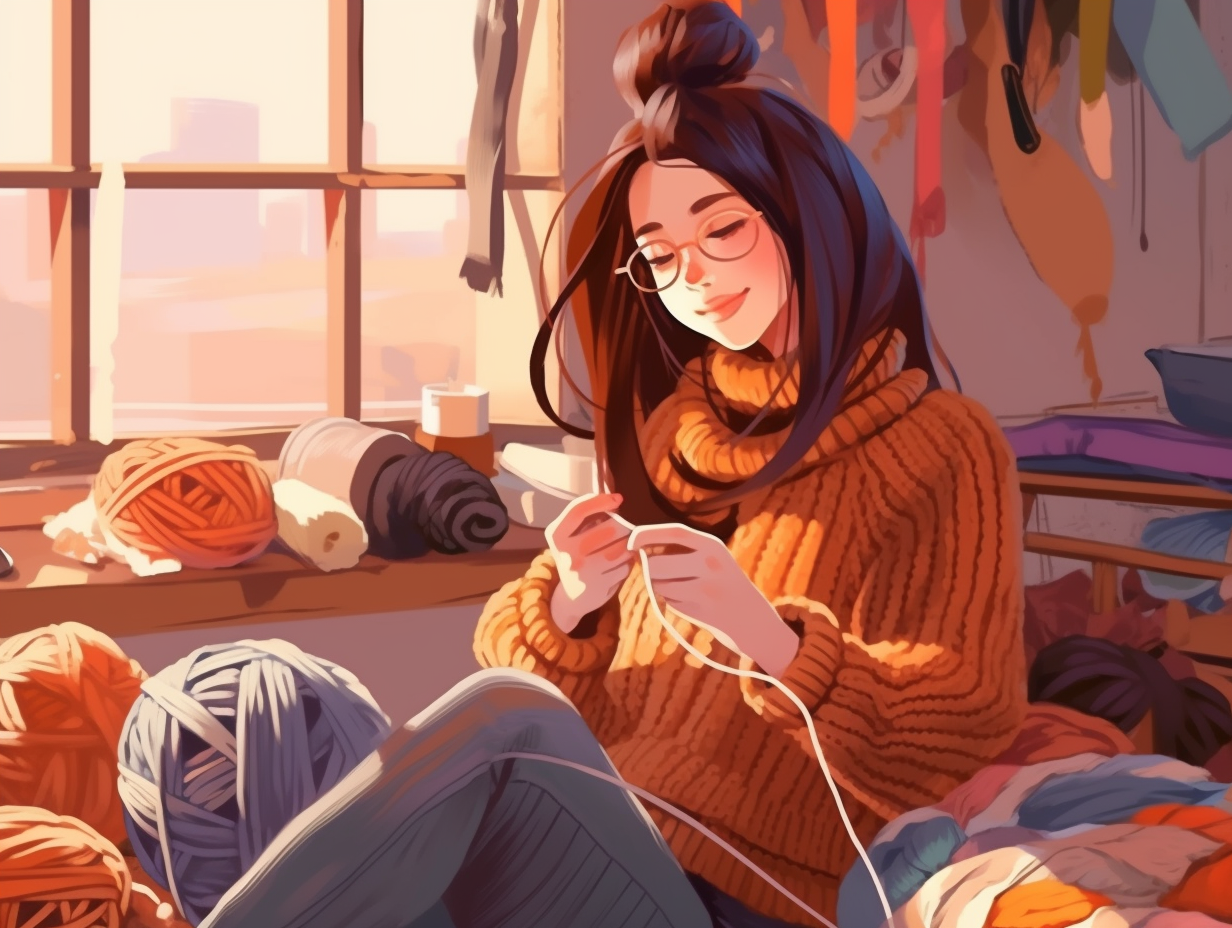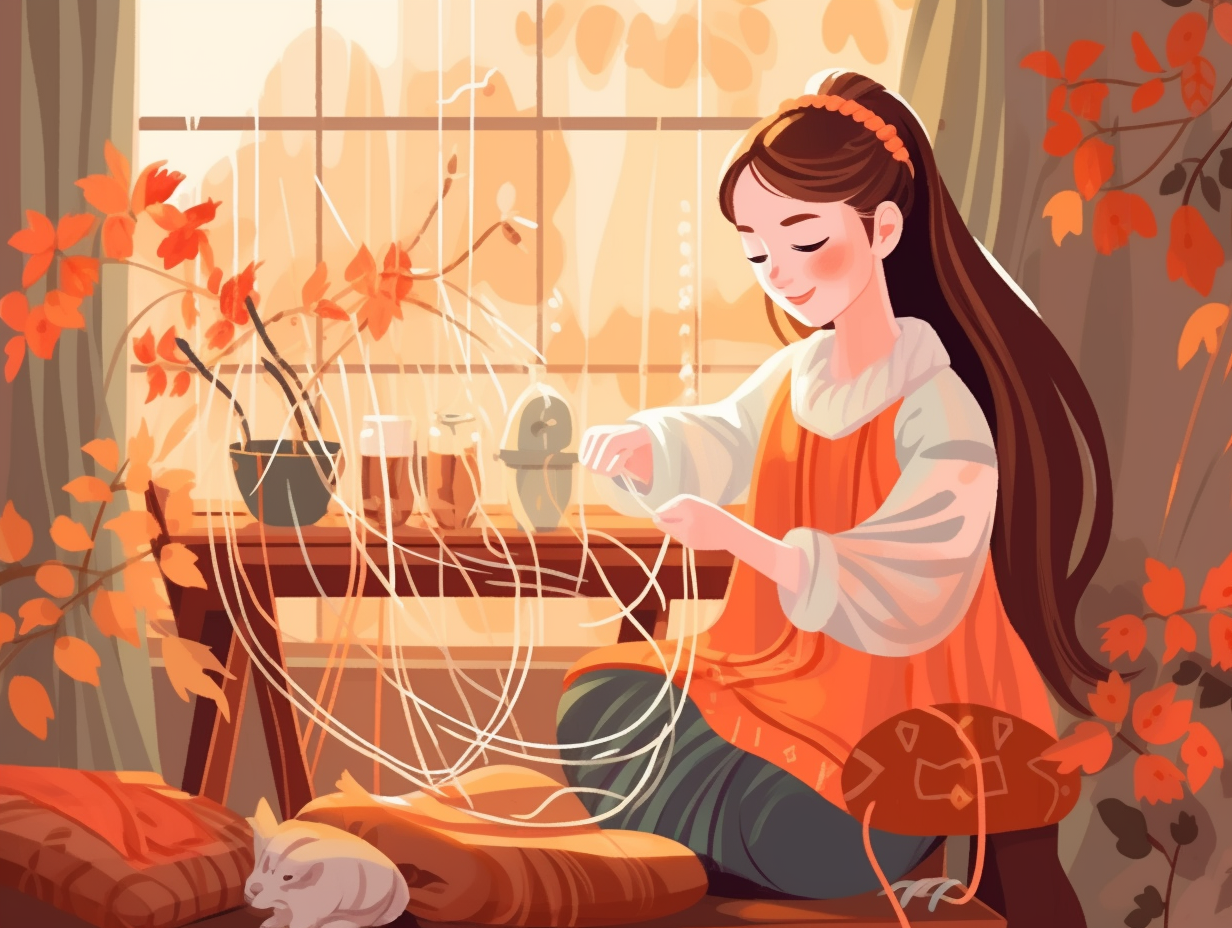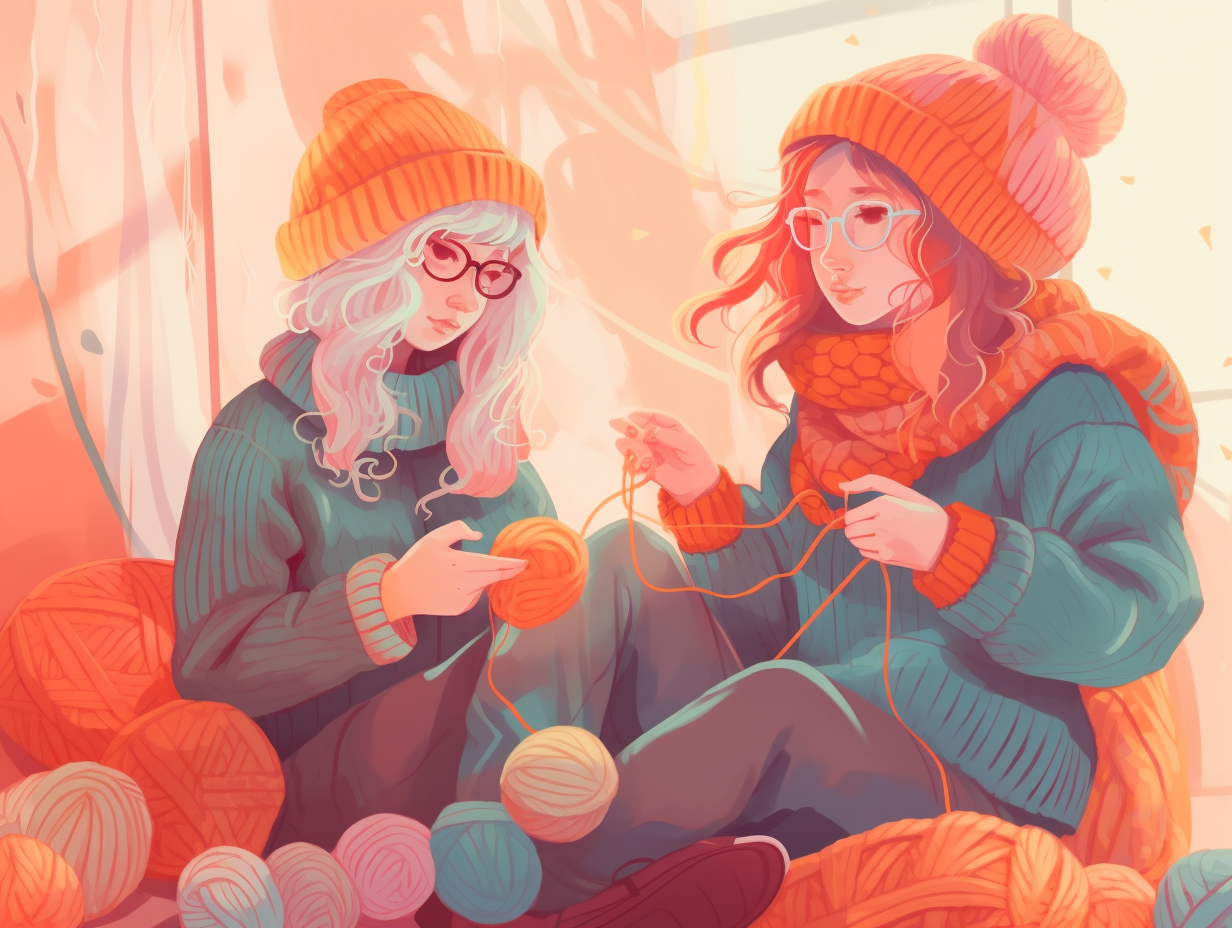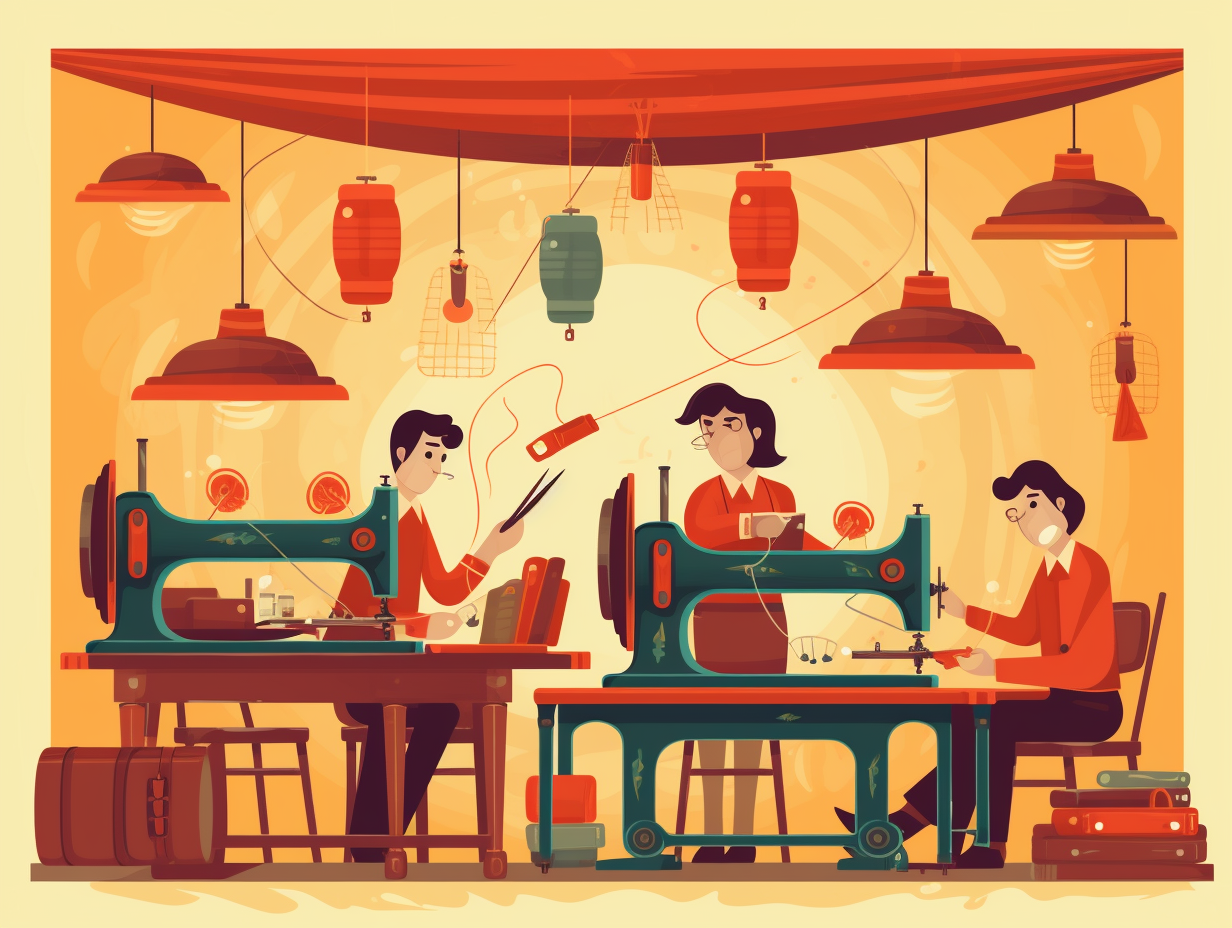Discover the Unraveling World: Top 9 Fun Facts About Knitting You'll Love!

1. Sock-it-to-em World War I knitters
In a valiant act of sock-it-to-em: During World War I, over 6,000 American Red Cross volunteers, including a mighty knitting ensemble from Seattle, feverishly knitted wool socks - along with wristlets, mufflers, and sweaters - to combat the cold-conducting hobnailed boots worn by soldiers in the trenches, providing much-needed warmth and dryness to their freezing feet.
Source => historylink.org
2. Fast and Furious knitting
Who would've thought that knitting could be the "Fast and the Furious" of the crafting world, making you feel like Vin Diesel with yarn? Well, buckle up, buttercup: Miriam Tegels from the Netherlands holds the Guinness World Record for the fastest hand-knitter, boasting 118 stitches in just one minute back on August 26, 2006, at the Swalmen Townhall – watch and learn from her videos, and you too could be racing to knitting stardom!
Source => purplekittyyarns.com

Unravel the mystery of loom knitting as we take you through its tangled web of aliases, including peg frame knitting and French knitting, while exploring its journey across locations and eras! 🧶🕵️♀️✨
=> Fun Facts about Loom-Knitting
3. Knitting espionage in wartime
Knit happens: Knitting was more than just a crafty pastime during WWI and WWII, as women used it to support the war effort, creating warm clothing for soldiers, and to inconspicuously partake in espionage activities by sending coded messages through their stitchwork.
Source => history.howstuffworks.com
4. First space-crafted stuffed dinosaur
In a world where dinosaurs were thought to be extinct, one heroic astronaut defied all odds and created life in the cold vacuum of space – well, sort of: During Expedition 37 in 2013, NASA astronaut Karen Nyberg made a stuffed dinosaur toy for her son using velcro-like fabric from Russian food containers and t-shirt scraps, becoming the first person to ever create a stuffed animal in outer space!
Source => space.com

5. World's longest scarf odyssey
Scarves, scarves everywhere, but none quite like Helge's snaking masterpiece: On November 12, 2013, Helge Johansen of Norway completed the world's longest scarf, stretching a whopping 4,565.46 meters in length – that's equivalent to 550 London double-decker buses or the entire length of Central Park! It took him 30 years of skillful knitting, and he had to unravel it in a sports center in Oslo for the grand display.
Source => guinnessworldrecords.com
6. The Great Sheep Boom and wool trade
Who knew that medieval England had a serious "baa-humbug" moment of their own during the Great Sheep Boom? Turns out, it wasn't just about knitting their way to riches: In reality, the wool trade played a vital role in England's economy between the 13th and 14th centuries, with exports peaking around 45,000 sacks per year. However, the great rise of sheep wasn't fueled solely by the demand for cozy sweaters - meat production for urban markets was also a herding force.
Source => en.wikipedia.org
7. Knitting's ancient origins
Before the Chicken Dance of ancient textile techniques had everyone in stitches, there was knitting: an ingenious innovation that emerged between the 5th and 13th centuries A.D., likely in the Middle East or Egypt, as a way to save time, energy, and spare looms from knotty showdowns with nâlbinding.
Source => makersmercantile.com
8. Yarn bombing street art revolution
Knit happens: in a world where graffiti and street art reign, a cozy form of expression has taken over cityscapes by storm, transforming lampposts and mailboxes into bundles of yarn-covered joy. It all started in 2005 when artist Magda Sayeg knitted a sweater for her store's door handle in Houston, Texas, inspiring an international yarn bombing movement and delighting urban dwellers with vibrant, handmade installations from Stockholm to Melbourne and Paris.
Source => nytimes.com
9. Power-knitting for sustainable energy
Knitters, unite! You're about to become the unsung superheroes of the sustainable energy world, powering up gadgets with every flick of your nimble fingers: Loughborough University scientists have developed energy-generating textiles inspired by knitting, using the wearer's natural body movement to create electricity that can power low-energy environmental sensors and electronic devices.
Source => azosensors.com






